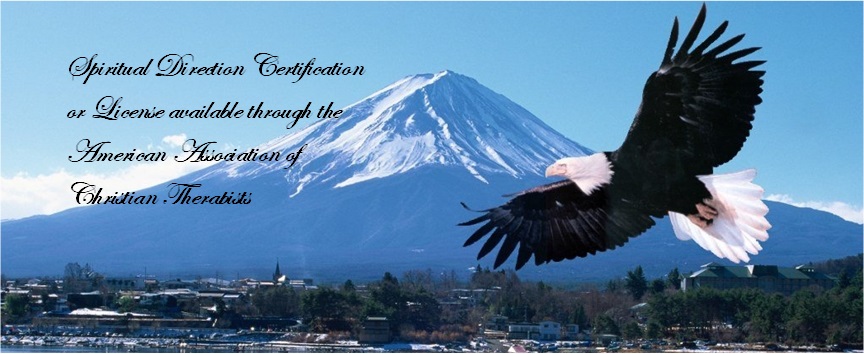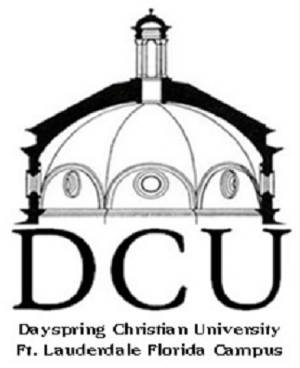|

Dayspring Christian University
is continuing to expand its educational offerings…You will soon see more like the following added to the already
generous offering of DCU and the ITCT.
We will soon be offering courses that will
compare Theology vs. Religious Interpretation - A class that studies Theology emphasizing
the differences in denominational and religious teaching as opposed to sound bible exegesis and interpretation. This will be a part of the Education, Ministry, and Theology degrees…
There is not
enough prayer in our ministries… So we will be starting courses
like, Relationship Prayer – Where we learn the power of prayer not based on formulas, but on our right standing
with God through His free gift of righteousness. We will study and learn our powerful position with God when we break through
performance based Christianity and enter into a close and personal relationship with God.
Principle of Parenting or Parenting for families…
Courses like this one will be added to the Psychology, Therapy, and Counseling degrees
The following
subjects and courses will be added to degrees and new degrees will be created so that our ministers can truly learn how to
do effective ministry… When you graduate from DCU and any other school in the Consortium…YOU WILL KNOW WHAT YOU
ARE DOING!!! Below are some of the following courses and degrees to be offered…
Spiritual Warfare Courses and Discipleship Development Programs
Christian
Administration and Communication Studies Programs
Fitness
& Sports Ministry Programs
Music Theory courses and Urban ministry program
APOLOGETICS Programs and Missions and Evangelism Programs
Religious Literature
Programs and Intercultural programs
Historical Theology programs
Religion studies and Biblical languages
programs
Leadership training is very much needed so
we will create “Leadership Development” training courses for Conferences,
Seminars & Workshops with churches and business U.S and Africa countries.
Check back in the next several weeks and by
the end of each year you will see a new standard for education and ministry.

DCU And
The AACT Announce Nine New Degrees*
The American
Association of Christian Therapists, the AACT, through Dayspring Christian University now offers nine new degrees in three
new disciplines. These are Biblical Psychotherapy, Christian Life Coaching,
and Spiritual Direction.They are;
Master
of Biblical Psychotherapy (42 Credit Hours)
Doctor
of Biblical Psychotherapy (44 [practice] and 57 [teaching] Credit Hours)
Doctor
of Philosophy in Biblical Psychotherapy (67 Credit Hours)
Master
of Christian Life Coaching (42 Credit Hours)
Doctor
of Christian Life Coaching (44 Credit Hours)
Doctor
of Philosophy in Christian Life Coaching (57 Credit Hours)
Master
of Spiritual Direction (42 Credit Hours)
Doctor
of Spiritual Direction (44 Credit Hours)
Doctor
of Philosophy in Spiritual Direction (57 Credit Hours)
Call
the AACT or the DCU for more details.
* * * * * * *

Spiritual direction is the practice of being with people as they attempt
to deepen their relationship with the divine, or to learn and grow in their own personal spirituality. The person seeking
direction shares stories of his or her encounters of the divine, or how he or she is experiencing spiritual issues. The director
listens and asks questions to assist the directee in his or her process of reflection and spiritual growth. Spiritual direction
develops a deeper relationship with the spiritual aspect of being human. It is not psychotherapy, counseling, or financial
planning.
While there is some degree of variability, there
are primarily two forms of spiritual direction: retreat direction and regular direction. They differ largely in the frequency
of meeting and in the intensity of reflection. If the directee is on a retreat (lasting a weekend, a week or even 40 days),
he or she will generally meet with their director on a daily basis for one hour. During these daily meetings, exercises or
spiritual disciplines such as lectio divina are given to the directee as fodder to continue his or her spiritual growth. Regular
direction involves a one to two hour meeting every four to eight weeks, and thus is slightly less intense than retreat direction,
although spiritual exercises and disciplines are often given for the directee to attempt between meetings.

Within Christianity, spiritual direction has its
roots in the Early Christianity. The gospels describe Jesus serving as a mentor to his disciples. Additionally, Acts of the
Apostles Chapter 9 describes Ananias helping Paul of Tarsus to grow in his newfound experience of Christianity. Likewise,
several of the Pauline epistles describe Paul mentoring both Timothy and Titus among others. Tradition tells that John the
Evangelist tutored Polycarp, the second-century bishop of Smyrna.
Because
of the nature of spiritual direction, effective preparation for this ministry requires both extensive professional training
and distinctive personal qualities. The Degrees in Spiritual Direction (MSD, DSD, Ph.D. SD), therefore, are built on selective
admission requirements and also on a progressive evaluation of candidates. The process of preparation is at the same time
a process of discernment on the part of the candidates together with the faculty, concerning the future direction of their
ministry. An evaluation of each candidate’s aptitude for spiritual direction occurs at the end of each year. Those who
do not receive satisfactory evaluation, or those who do not wish to pursue the full ministry of spiritual direction, may complete
the Certificate in Faith Companioning.
The Degree/s in Spiritual Direction is/are for women and men interested in pursuing the ministry of
spiritual direction. The program is designed for those first discerning a potential involvement in this ministry as well as
experienced spiritual directors who seek ongoing professional development. The program combines courses in theological studies
with a transformative method of preparation for minstry. Candidates are expected to have considerable life experience and
high level of maturity. Candidates bring a capacity for genuine self-awareness to a process of supervision.

Courses for Spiritual Directors…
The curriculum
for the Certificate in Spiritual Direction includes 18 credit hours plus three practicums. The remainder of the
credits needed shall be taken from the Theology and Bible curriculum offered by DCU
Spiritual Direction
Praxis Core (9 hours)
Foundations of Spiritual Direction
Basic
Skills for Spiritual Direction Practitioners
Advanced Skills for Spiritual Directors
Spiritual Theology
Core (9 hours)
History of Spirituality
Spirituality and
Wellness
Holistic Wellness
Christian Mystical Traditions
Personal Spirituality and the Theology of Experience
Spiritual Direction
Practicum (3 hours)
Practicum (1 hour)
Practicum (1 hour)
Practicum
(1 hour)
All practicums will be specifically
designated at the time of the class.
Doctoral level study will be created with Professor, staff and student
interaction. Application of the Master’s level courses will be a part
of the Doctoral Study. Or if one has a Master’s degree in another discipline
the core courses will be implemented into the Doctoral programs.

Training for becoming a
Christian Life Coach

The Degrees in Christian Life Coaching
Coaching refers to the activity of a coach in developing the abilities of coachees or clients.
Coaching tends to focus on the achievement by coachees of a goal or specific skill. Methodologies for coaching are positioned
away from the directive or the facilitative, and rest on accompanying clients within a dialogue that will allow emerging patterns
and solutions to surface. Coaching lies out of the scale between mentoring and training on one end, and psychotherapy and
counseling at the other.
There are many applications of coaching ranging from sport, to
business, to niches such as divorce or motivational speaking. Sessions may be one-on-one either or in a group setting, in-person or over the telephone, or
by mail, or via IRC. It may include supervised practice such as in shadow coaching, and often in team or organizational coaching.
Team coaching also applies to structured systems in organizations much like in sports.
Today, Christian Coaching is a recognized discipline used by many
professionals engaged in Christian and Pastoral counseling, focused on achieving results. However, as a distinct profession,
it is relatively new (since 1990) and self-regulating (except for international professional associations). No independent
supervisory board evaluates most practicing coaches or Christian Life Coaches.

Courses
Achievement oriented
learning
Holistic
approach to living
Dis-Creation
Discovery Information
Multi-Sensory
Coaching Method Information
Training Techniques will help you use your
innate powers
Learning Christ centered Life Coaching
Scriptural application to Life Coaching
Other courses in Christian
and Pastoral Counseling may be applicable to the completion of this degree. These
are in the DCU Catalog and on the DCU Website.
|
